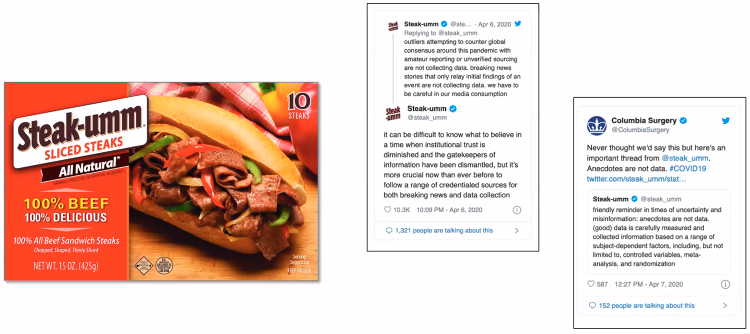
The current pandemic has a D-Day for marketing:
it's not that it's about a "disease," but about a new era of "disruption" that will accelerate a shift that has already begun to take place in the purpose of brands: making them less about you (the
consumer), and more about us (society).
That was the central thesis put forth by highly regarded consumer researcher and futurist J. Walker Smith during a special webinar hosted by the
Advertising Research Foundation Thursday examining how brands can best respond to the crisis.
"As much as people are concerned about their health," Smith said research shows they are becoming
more concerned about day-to-day "disruptions," especially the near and long-term impact it is having on the economy and their personal finances.
"The bigger effect of this pandemic is the
disruption of day-to-day life," said Smith, the Chief Knowledge Officer of Kantar Consulting, providing research showing 70% of Americans are experiencing such disruption and making the case that it
is actually a more profound impact than their concerns about their personal health.
advertisement
advertisement
Looking at the crisis as a fundamental disruption in the way consumers and society think is a better way of
understanding how it will impact brand marketing long-term, especially where it will take consumer expectations next, he said, noting that the purpose of brand marketing has already begun shifting
toward what Smith described as its third wave.
The first wave, which manifested after World War II, was about "product," when all a brand had to do was make consumers aware that it existed and
what its attributes were.
The second wave, Smith said, manifested during the "me decade" when brands shifted their purpose to being about individual consumers and how their product or service
could improve individuals' lives.
The third wave, which already began to manifest, and which Smith said would be accelerated by the pandemic, is shifting the focus of brand purpose to being
more about society-at-large.
Noting that Americans already have experienced three major "disruptions" to society since the beginning of the 21st Century -- the 9/11 terrorist attacks, the 2008
financial crisis, and now the COVID-19 pandemic -- Smith said consumers had already begun accelerating this shift.
He cited research conducted by the Edelman Trust Barometer in 2017 and
updated by Kantar in 2019 showing a marked increase in the percentage of consumers that expect brands to make society better -- jumping from about half of consumers to two-thirds, prior to the current
crisis (see data above).
"People are demanding that brands deliver not just a better self, but a better society, as well," Smith said, citing a global study published by The Conference Board
in February, which found "governments aren't living up to those expectations" and that consumers are looking to brands in the private sector to "fill the void."
In fact, a variety of research
published in recent weeks has indicated that brand marketers have actually done a better job than most other institutions, especially governments and the news media, in addressing issues and meeting
society's needs.
Smith cited a number of recent examples of consumers and brands accelerating this shift, including the climate change awareness advocate Great Thunberg, Nike's Colin
Kaepernick campaign, and perhaps most surprising of all, one from Steak-umm combating the spread of disinformation during the COVID-19 pandemic.
In recent weeks, Steam-umm has turned over its
Twitter feed to an informational campaign to provide accurate health information to its followers and also to debunk misinformation being spread on social media.
"By delivering factual
accurate information with things related to to the Coronavirus and actively campaigning against disinformation," Smith said Steak-umm exemplifies the kind of role brands need to take in order to have
a societal purpose.
"That's the kind of role that consumers expect," he said.


